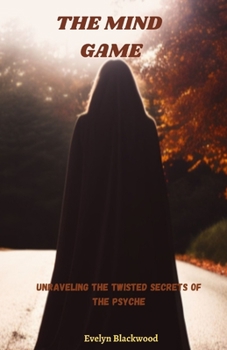The Mind Game: Unraveling the Twisted Secrets of the Psyche
Select Format
Select Condition 
Based on Your Recent Browsing
Book Overview
"The Mind Game" is a psychological thriller that will leave you questioning everything you thought you knew about the human mind.
Sarah, a young and successful lawyer, is on the brink of a breakdown after being sexually assaulted by a client. As she struggles to come to terms with the trauma, she begins to experience terrifying hallucinations and is haunted by memories of a dark past she can't escape.
Desperate for answers, Sarah turns to Dr. Miller, a renowned psychiatrist who specializes in treating victims of trauma. But as she delves deeper into her psyche, Sarah begins to question whether her mind can be trusted.
As her grip on reality begins to slip, Sarah finds herself trapped in a dangerous game of cat and mouse with a mysterious figure who seems to know her darkest secrets. With each twist and turn, the lines between reality and delusion blur, and Sarah must race against time to uncover the truth before it's too late.
"The Mind Game" is a gripping and suspenseful tale of one woman's fight for survival against the demons of her past and the twisted minds of those around her.
Sarah, a young and successful lawyer, is on the brink of a breakdown after being sexually assaulted by a client. As she struggles to come to terms with the trauma, she begins to experience terrifying hallucinations and is haunted by memories of a dark past she can't escape.
Desperate for answers, Sarah turns to Dr. Miller, a renowned psychiatrist who specializes in treating victims of trauma. But as she delves deeper into her psyche, Sarah begins to question whether her mind can be trusted.
As her grip on reality begins to slip, Sarah finds herself trapped in a dangerous game of cat and mouse with a mysterious figure who seems to know her darkest secrets. With each twist and turn, the lines between reality and delusion blur, and Sarah must race against time to uncover the truth before it's too late.
"The Mind Game" is a gripping and suspenseful tale of one woman's fight for survival against the demons of her past and the twisted minds of those around her.
Format:Paperback
Language:English
ISBN:0230103375
ISBN13:9780230103375
Release Date:September 2010
Publisher:Palgrave MacMillan
Length:228 Pages
Weight:3.45 lbs.
Dimensions:0.8" x 6.0" x 9.3"
Customer Reviews
5 customer ratings | 5 reviews
There are currently no reviews. Be the first to review this work.




















